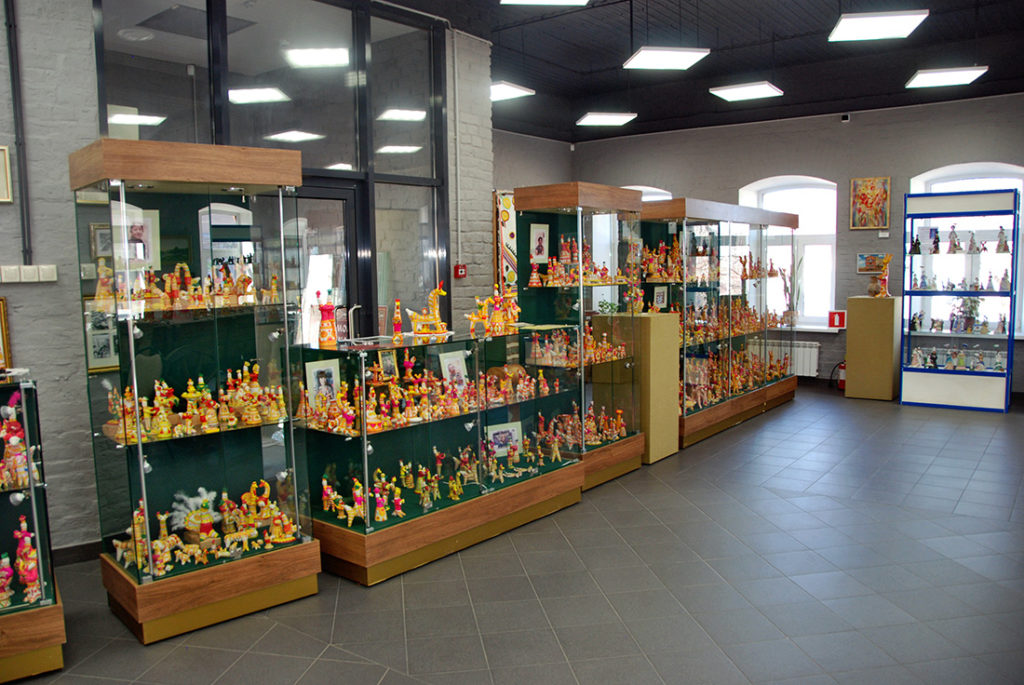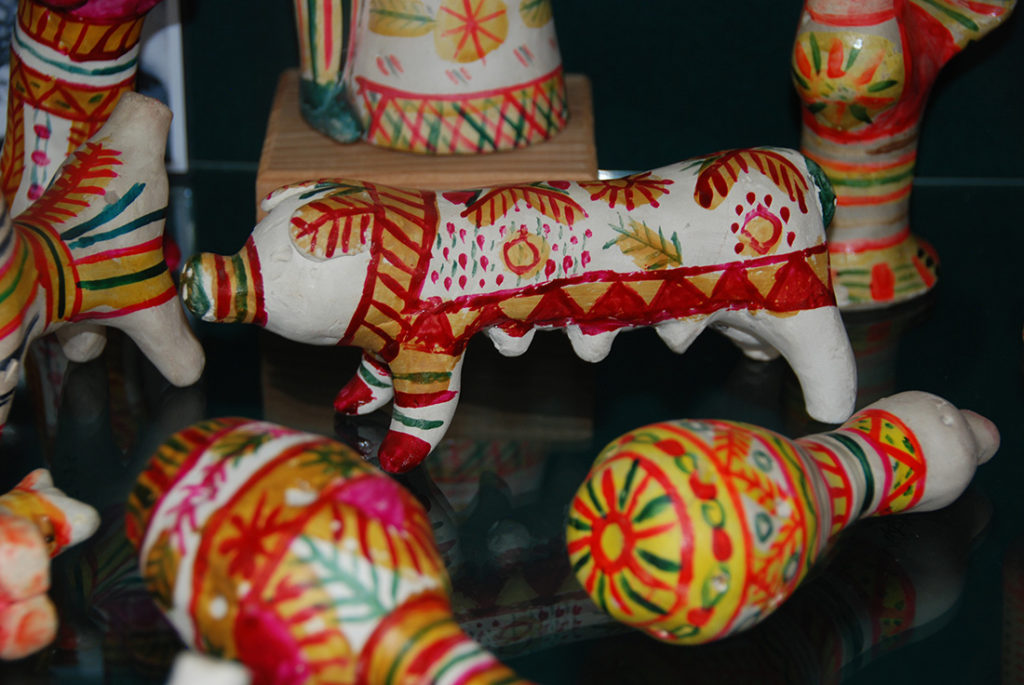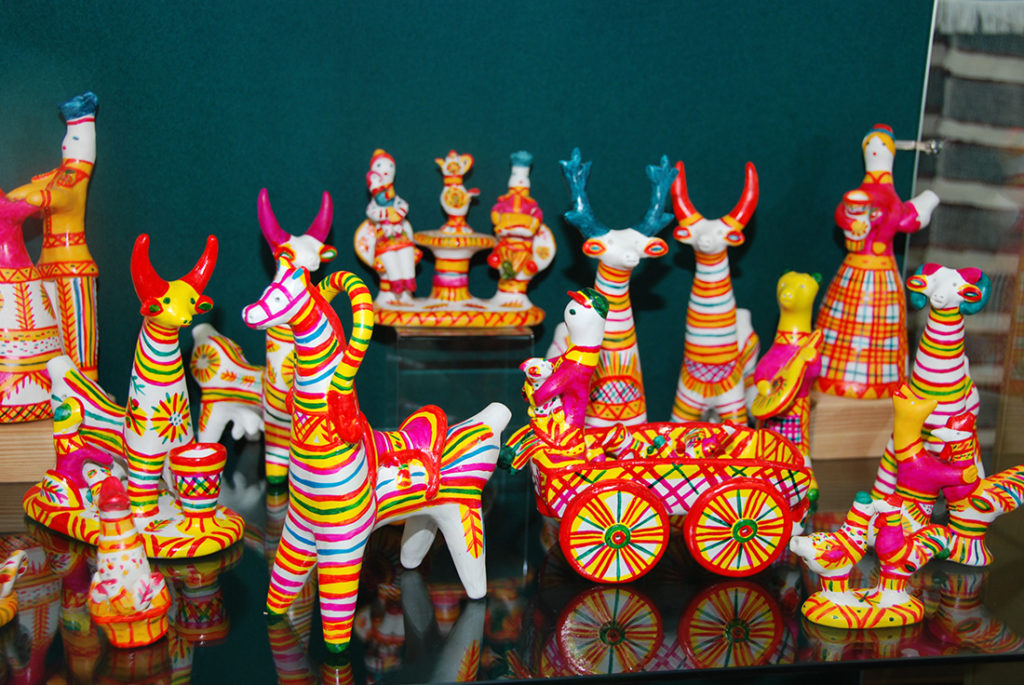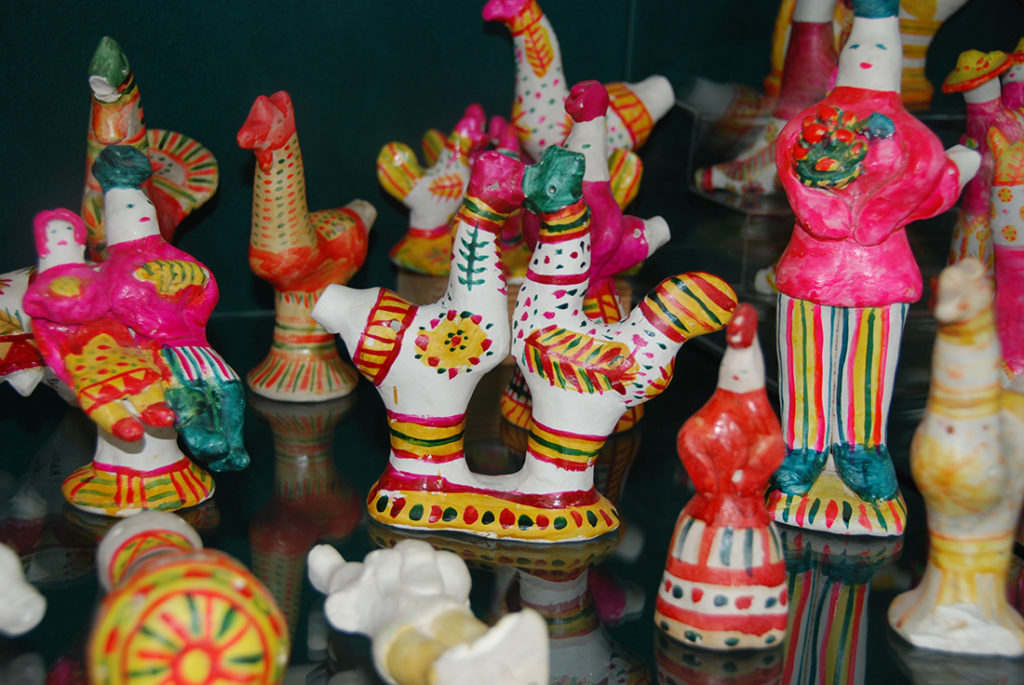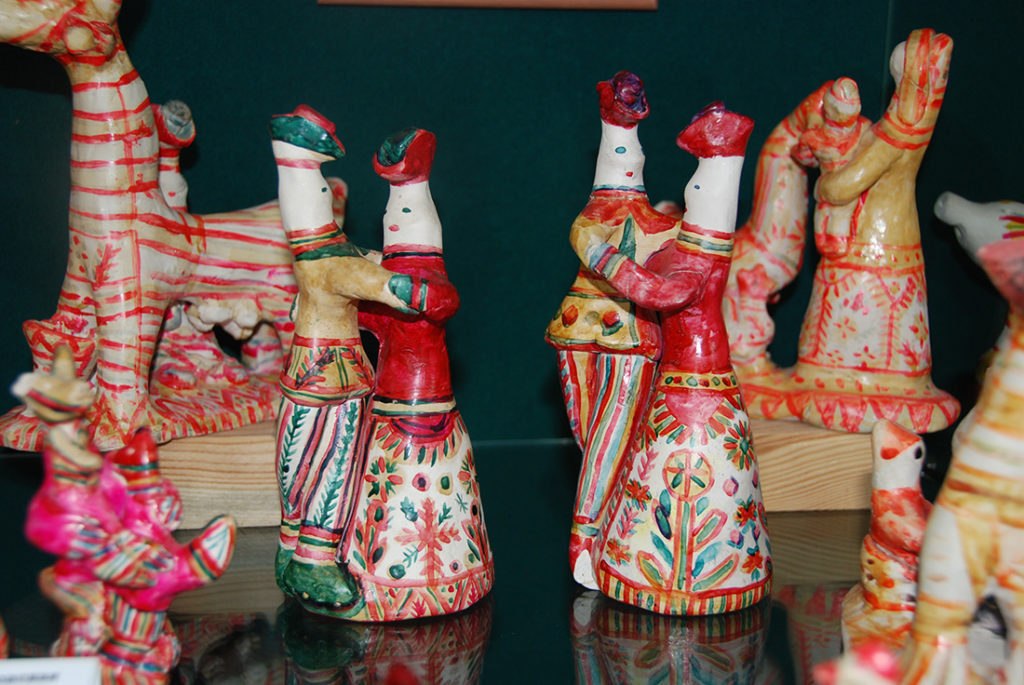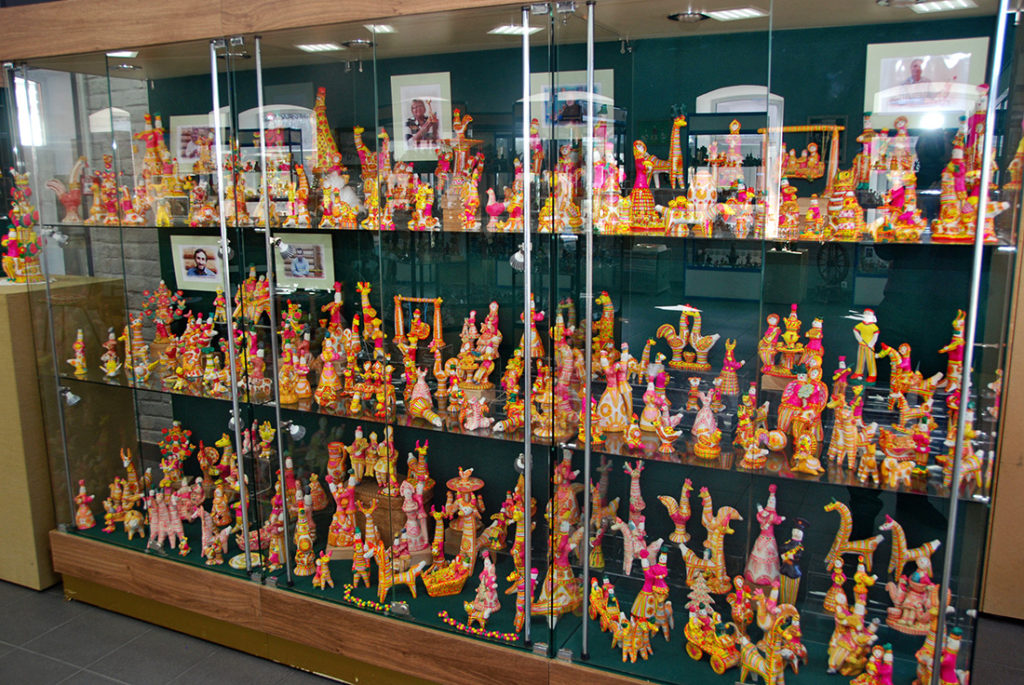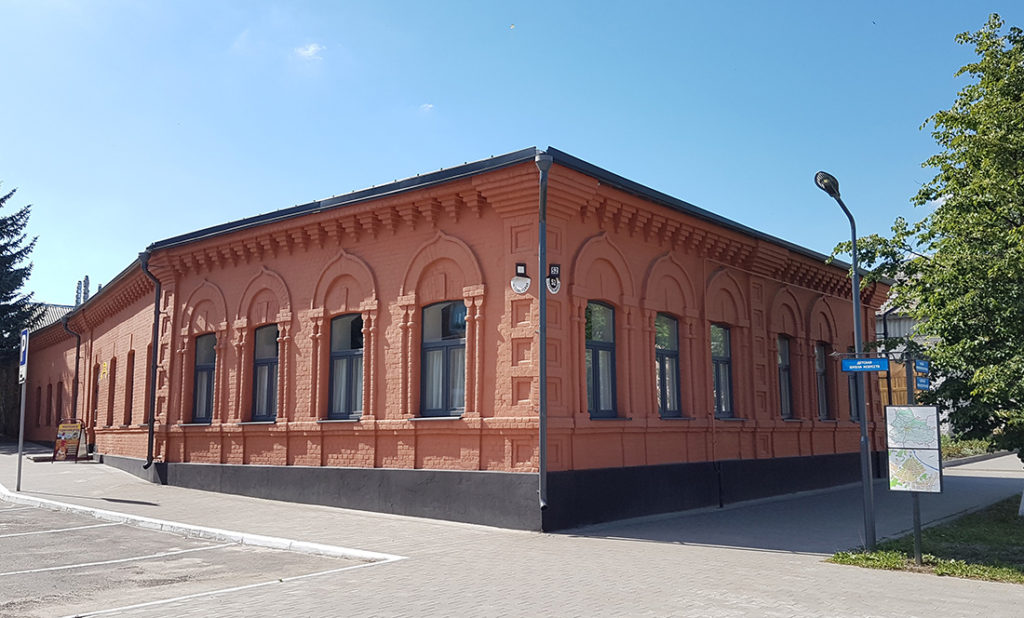The Filimonovo Toy Museum
Tula region
Contact information
Tula region, Odoevsky district, Odoev village, Karl Marx ul., building 52
Tel.: +7 (910) 151-07-70
E-mail: yarilonews@mail.ru
Operating hours
Wed – Sun: from 10:00 to 17:00
Mon, Tue: Closed
Ticket price
Adult ticket – 250 rubles
Discounted (children, students, pensioners) – 150 rubles
Workshops on painting Filimonovo toys:
Adults – 290 rubles
Children – 290 rubles
Modeling and painting:
Adults – 390 rubles
Children – 390 rubles
Museum founder (owner/director)
Sergey Vasilevich Kuznetsov
Founded
2009
The museum is unique in that it is specialized and presents Russian clay toy crafts. Perhaps it is one of a kind.
The main exposition is dedicated to the Tula region’s traditional craft, the Filimonovo toy. This should not be confused with toys from other regions.
The unique beauty of this toy attracts the eyes of both adults and children. Its secret lies in the blue, local clay which, when fired, becomes completely white, serving as a background for applying vivid drawings in only three colors: yellow, red and green. The filimonovo toy also differs in its features of modeling.
Deliberately molded proportions, elongated figures of ladies and soldiers, and oddly enough, animal necks, add to the toy’s grace and solemnity.
The museum is located in an old manor house built in the late 19th and early 20th centuries, located in the historical part of the village. The exposition basis is clay toys, photographs, and materials on the history of clay crafts from the personal collection of Sergey Vasilyevich.
The museum became a platform that brought together all the craftsmen working in the field, including those living in the Tula and Kaluga regions. But the main and, perhaps, determining factor was the fact that the museum was created in the craft’s birthplace (Filimonovo village is located 10 km from the district center), where hereditary masters of Filimonovo toys still live and work.
The museum’s active work contributes to the new conditions created for the preservation and further development of the Filimonovo craft. It is safe to say that the creation of the museum is a new stage in the craft’s development itself.
